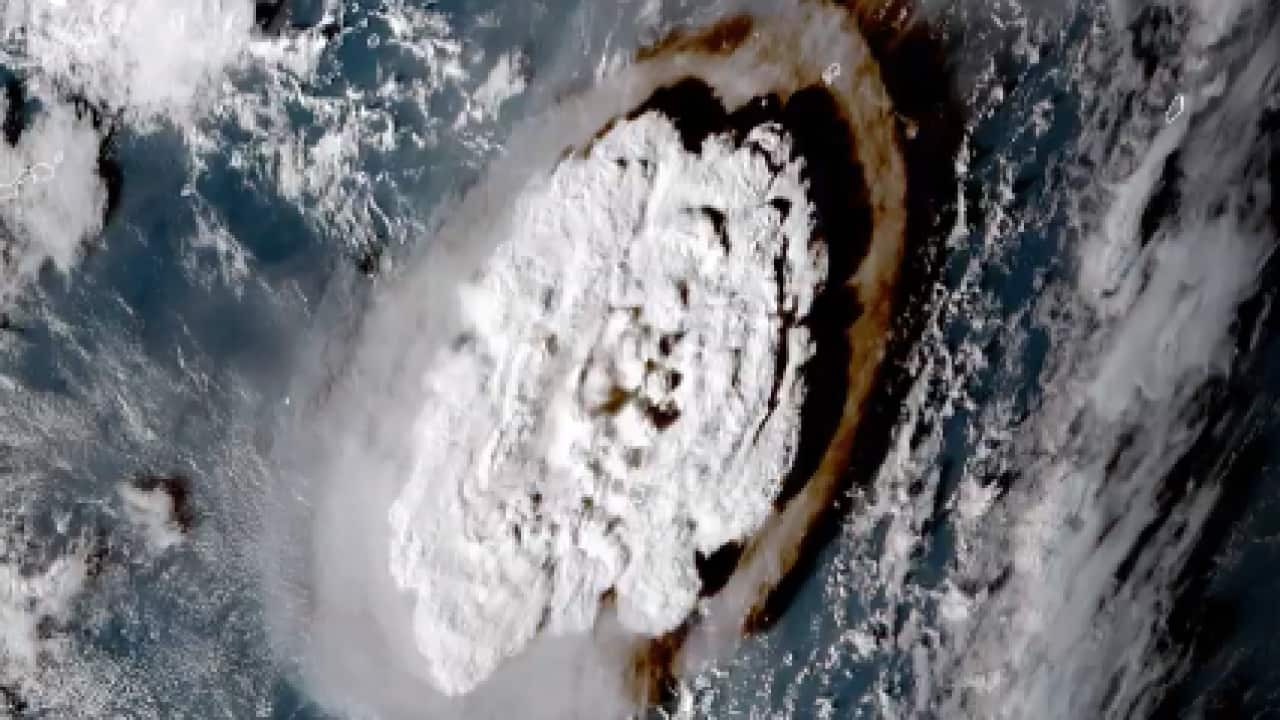Beaches have been closed in New South Wales and Queensland after caused tsunami and marine warnings across the Pacific.
The Hunga Tonga-Hunga Ha'apai volcano erupted on Saturday afternoon, and tsunami waves have been observed as a result.
As of 12:30 AEDT on Sunday, tsunami warnings remained in place for NSW, and Lord Howe and Norfolk islands. Earlier warnings in place in Tasmania, Victoria and Queensland had been cancelled.
NSW Dominic Perrottet said on Sunday morning beaches in the state had been closed and people should follow instructions from authorities.
“The beaches are closed. Please do not swim,” he told reporters on Sunday.
“These rules are in place to protect you and to keep you safe. Please follow those instructions as the Bureau of Meteorology provides further information to the government over the course of the day.”
The SES said a rock fisherman had to be rescued on Sunday morning.
Southeastern Queensland beaches have also closed for the day, despite the marine warning being lifted for the state late on Sunday morning.
“Conditions are unusual and unstable,” Surf Life Saving Queensland said on Twitter. “SLSQ services are asking the general public to not enter the water.”
The BOM earlier said a tsunami wave height of 1.27 metres was observed on Norfolk Island at 9pm AEDT and an 82cm wave was registered on the Gold Coast at 10.54pm AEDT on Saturday. Waves up to 1.10m-high were being recorded at Ned's Beach on Lord Howe Island about 11pm AEDT and a 50cm surge was observed at Hobart's Derwent Park about 11.44pm AEDT.
Port Kembla in NSW's Wollongong registered a 65cm wave at 2.50am AEDT on Sunday.
Health Minister Greg Hunt said on Sunday no Australians have been injured following the eruption.
Mr Hunt said Foreign Minister Marise Payne and the Department of Foreign Affairs and Trade are working with Tongan authorities.
"DFAT will continue to engage with the Tongan Government and has offered through the foreign minister all possible support that may be required," Mr Hunt told reporters in Canberra during his latest COVID-19 update on Sunday.
Injuries on Tonga are currently unknown with disruptions to communications.
Countries around the Pacific are also on alert, with the southern Japanese island of Chichijima recording a 75cm wave at 1am AEDT Sunday.
The bureau earlier detected a 1.19m wave in Nuku'alofa, Tonga's capital.
The eruption cut the internet to Tonga, leaving friends and family members around the world on Sunday still anxiously trying to get in touch to figure out if there were any injuries and the extent of the damage.
Tonga gets its internet via an undersea cable from Suva, Fiji, which presumably was damaged.
The Tonga Meteorological Services on Saturday declared a tsunami warning for the whole archipelago, and data from the Pacific tsunami centre detected waves of 80 centimetres.
On Tonga, home to about 105,000 people, video posted to social media showed large waves washing ashore in coastal areas, swirling around homes, a church and other buildings.
New Zealand Prime Minister Jacinda Ardern said images of the eruption were "hugely concerning" and agencies were still trying to establish full communications with the country.
With AAP.










